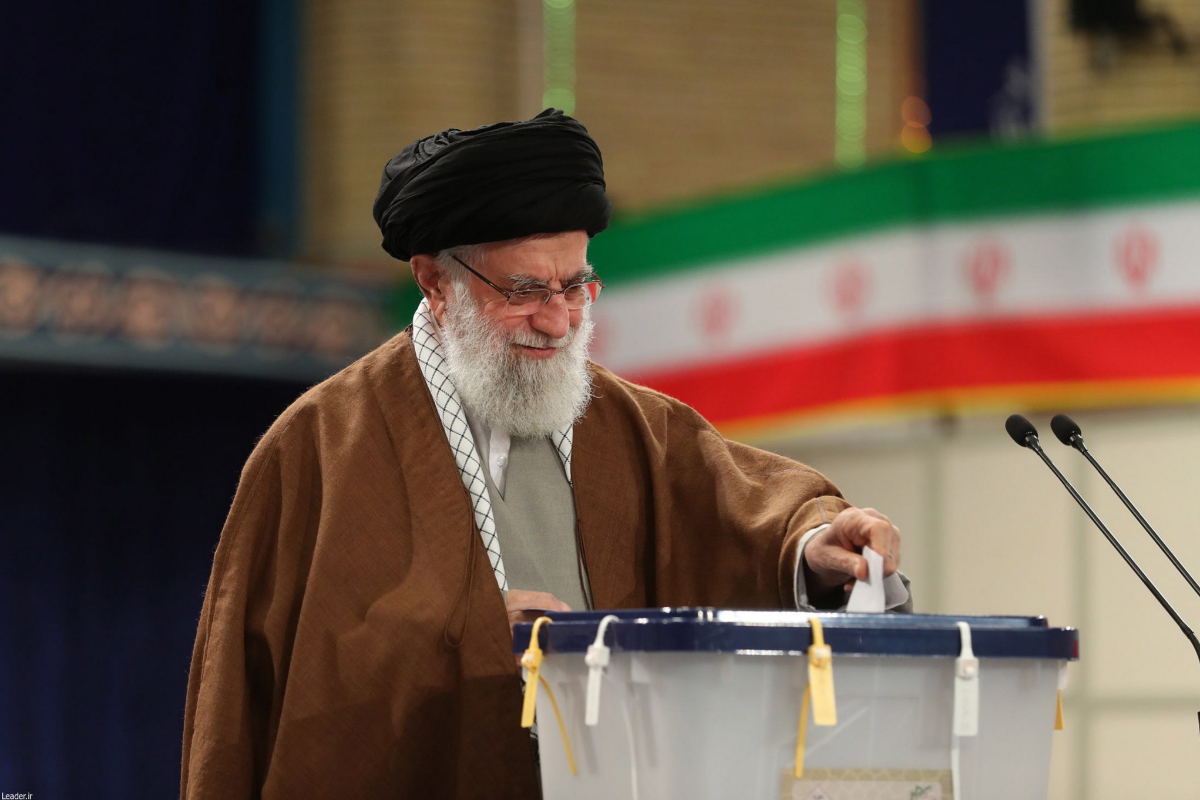- P&R. Elections in Iran: predictable but crucial for your future
- Elections: Frustration and apathy in Iran within a week of parliamentary elections
- Campaign: Protests heat the race to Iranian parliamentarians
Queues in conservative neighborhoods and not in wealthy. Such a difference was appreciated this morning in front of the Teheran electoral colleges and presumes a turnaround in the Machlés, the Iranian parliament, favorable to the hard line, against the weakened centrists and reformists. If this trend is confirmed by the results, in the next few days, observers predict a hemicycle that is closer to the rigorous non-elected organs of power for a more harmonious, but also more hostile to the West.
The Al Nabi Mosque, which during the visit of EL MUNDO registered a queue of two dozen voters, is known for gathering some old acquaintances of power: the faction related to the populist radical Mahmoud Ahmadinejad, who ruled from 2005 to 2013. There his former Foreign spokesman, Ramin Mehmanparast, opined to this newspaper that "we believe that the new parliament will have a majority of conservative candidates, but it is important that the independents constitute a second force."
The chamber has been dominated so far by the centrists, who are paying to have gone to rebuild an opening government that trusted its success to the now comatose nuclear agreement. The reimposition of US sanctions and European indolence to these have contributed to a damage to centrism without immediate cure. The fact that numerous reformist and centrist figures have not passed the court of the Council of Guardians to be candidates has finished undermining their options.
Mehmanparast points to an alternative: "The sanctions are not so important. We have 15 neighbors around, by land and sea, and a market of 500 million people living around us. There can be very good cooperation with them in terms of import and export ". And he adds: "To be more effective in the international arena, I think we must first be internally stronger. After that, we will be prepared to negotiate with Western countries, especially Europeans."
In Iran, this current seems to be prevailing, dominated by a commitment to economic self-sufficiency combined with a political and commercial refocusing towards the immediate region and the East, and raising the tone of anti-Western discourse. Not surprisingly, the former commander of the Revolutionary Guardian - an increasingly relevant factual power - and former mayor of Tehran Mohammad Baghir Ghalibaf, a hardline pragmatist, is one of the best positioned to place his list in Machlés.
"We need to choose people who put the public interest above the staff, not those who would pay their votes with kebabs in the same way they would sell the country for a kebab," says Amirali, a pediatrician who queues at the Nabi temple. "This vote will not bring the lifting of sanctions, but it will be a punch in the face of the United States from the most humble. I expect new politicians not to steal, to think in the public interest."
Although in a somewhat bloodless school in the central Quiam district, an expert votes for moderation and asking for a country "to stop trampling flags, because I don't see other countries doing the same with ours, which bears the name of God written ", domestic issues dominate speeches in front of the polls. "The economy," emphasizes Zahra, a computer student, covered with a chador, who voted for the first time. "I choose who will do what I would like to do," he says.
Zahra is one of the few people that this newspaper has seen voting in the Huseiniya Ershad, a center of the wealthy north of Tehran that in the last presidential elections registered a large queue of voters. The contrast with this Friday suggests the population sector frustrated with the establishment's response to recent challenges , such as bloody protests last November or the demolition of the Ukrainian plane, which was debated between voting or abstaining, as a symptom of a disaffection total.
"Neither I, nor anyone in my family, nor anyone among my friends will vote," says Fadime, a freelance designer, using text messages. "My main reason is the lack of appropriate candidates but I know, for other people, that perplexity is widespread. Most of them have no hope in a change and hate the system more than ever in these forty years," he has settled.
"Now more than ever we have to regain the people's trust . The deputies should take measures to achieve it, as well as revive national unity, to confront those who impose sanctions," said the reformist politician Mohammad Salari, who had gone to the Huseiniya Ershad to vote, he insisted, although the veto to many of his faction "has not provided the ground for full competition. But precisely because of this I am here. The basis of democracy is the elections."
According to the criteria of The Trust Project
Know more- Iran
- international
Venezuela Trump's back to Guaidó, present at the Congress during the speech on the State of the Union
United States Pete Buttigieg, the young gay who revolutionizes the Democratic primary
GermanyThe election of the president of Thuringia with the votes of the far right unleashes a political tsunami

